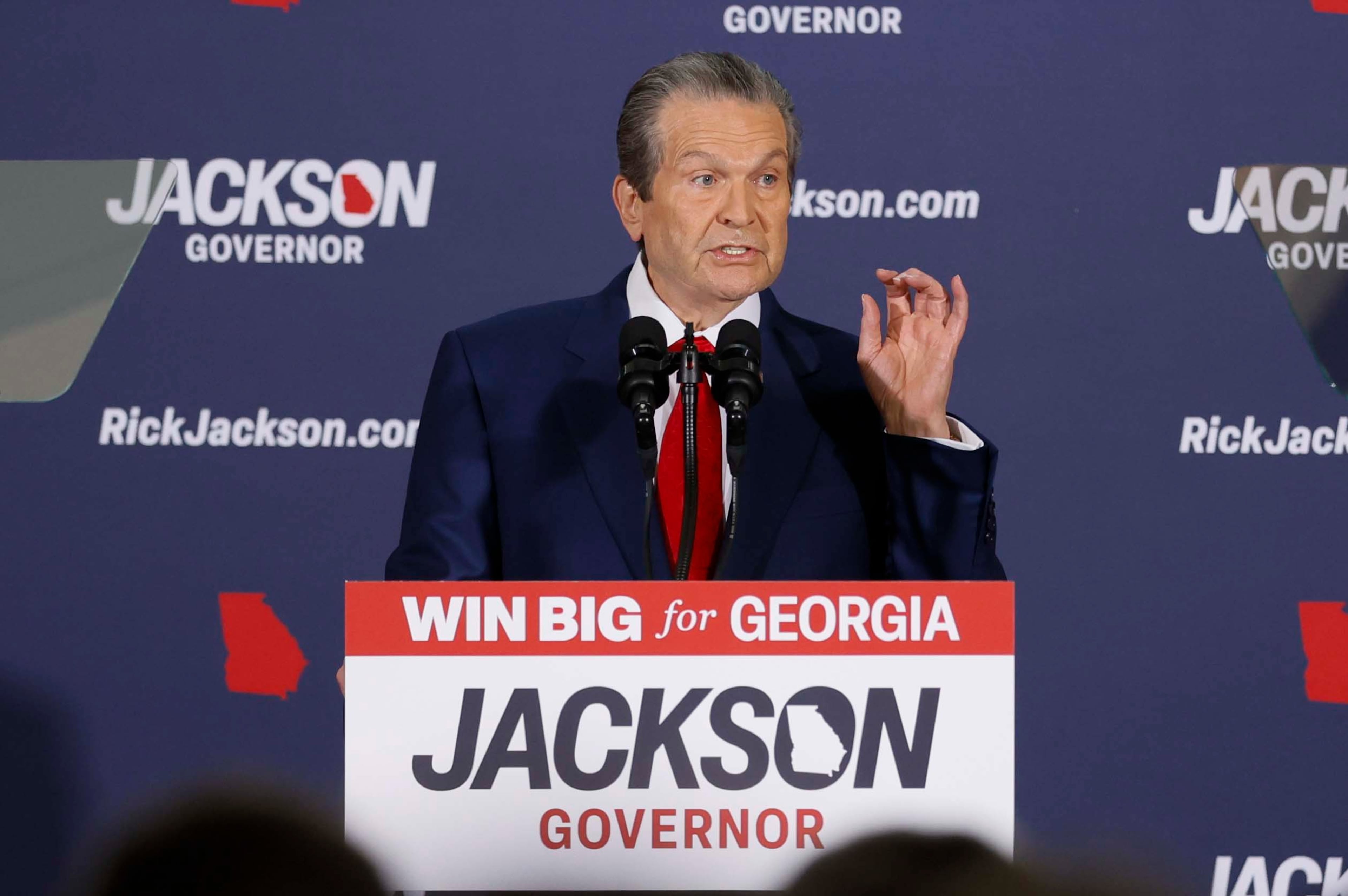Deal investigation didn’t require subpoenas, head of ethics commission testifies

State ethics commission director Holly LaBerge testified Wednesday that it wasn’t necessary to subpoena records in an investigation into Gov. Nathan Deal’s campaign because his attorney would give them voluntarily.
LaBerge’s testimony came as the trial of former commission director Stacey Kalberman’s whistleblower lawsuit entered its third day. Kalberman claims she was forced from office for aggressively investigating Deal’s 2010 campaign and that Laberge was handpicked by Deal’s staff to replace her.
The subpoenas are key to the case, as Kalberman and her top deputy, Sherilyn Streicker, were both out of a job barely a month after presenting draft subpoenas to the commission for approval.
LaBerge, hired two months later, never pursued the subpoenas. Instead, she relied on Deal attorney Randy Evans to voluntarily provide documents.
“Why would Mr. Evans voluntarily give you information that would incriminate his client?” Kalberman attorney Kim Worth asked LaBerge.
“I didn’t say he would,” LaBerge said. “It would be in his interest to resolve these cases.”
The cases — a series of complaints filed against Deal’s campaign — were resolved in 2012 when commissioners dismissed major charges against Deal and levied $3,350 in fees for technical defects in his campaign reports.
LaBerge was sworn in late Tuesday afternoon and testified that she was contacted by someone in Deal’s office to gauge her interest in Kalberman’s job before it was open. LaBerge testified that she did not remember who called her. Asked whether it was Ryan Teague, Deal’s chief counsel, LaBerge said she did not believe so. Deal’s office has told The Atlanta Journal-Constitution that it was in fact Teague who called LaBerge.
Later Wednesday, former ethics Commissioner Josh Belinfante testified that he contacted Teague to see whether the governor’s office would have a recommendation for the director’s job — should it become open.
“In conversations with Mr. Teague, Ms. LaBerge’s name came up,” Belinfante testified.
He initiated the call because “if we were left in a situation where Ms. Kablerman was to resign, I wanted someone who could step in, even on an interim basis,” Belinfante said.
Also Wednesday, former ethics Commissioner Kent Alexander seemed to surprise Kalberman’s lawyers by testifying that he believed the commission faced a real budget crisis in spring 2011. That crisis was the reason former commission Chairman Patrick Millsaps cited as the need to cut Kalberman’s salary by 30 percent and eliminate Streicker’s job. Kalberman has said that the budget was sound and that Millsaps and others really wanted to force her out over the Deal investigation.
“That’s what it was, it was a budgetary decision,” Alexander said.
But Alexander also testified that he did not find out that Millsaps and Belinfante were interviewing LaBerge while Kalberman was still employed as director.
“It surprised me,” Alexander said. “I do think it’s unusual that we have resumes being set up before there’s any reason to.”
With the jury out of the room Wednesday, lawyers for both sides argued whether two former commission employees may testify about how they lost their jobs. Former staff attorney Elisabeth Murray-Obertein and former computer specialist John Hair were both fired by LaBerge.
Murray-Obertein was fired after police accused her of being intoxicated at work. Hair claims he was fired after refusing LaBerge’s orders to alter or destroy documents in the Deal case file. LaBerge has denied the accusation.
Like Kalberman, Hair has filed a whistleblower suit against the commission, as has Streicker.
Murray-Obertein and Hair are both key witnesses for Kalberman, as both have given sworn depositions that LaBerge bragged that Deal “owed” her for helping scuttle the investigation. LaBerge and Deal have both said that’s not true.
Judge Ural Glanville ruled that both may testify after lawyers for both sides agreed the witnesses would not testify about how they lost their jobs. Assistant Attorney General Bryan Webb, who is representing the commission, said he would not seek to “impeach” Murray-Obertein over how she lost her job.
That would appear to be a blow to the defense, as Webb will not be able to challenge Murray-Obertein’s authenticity by raising the manner in which she was fired.


